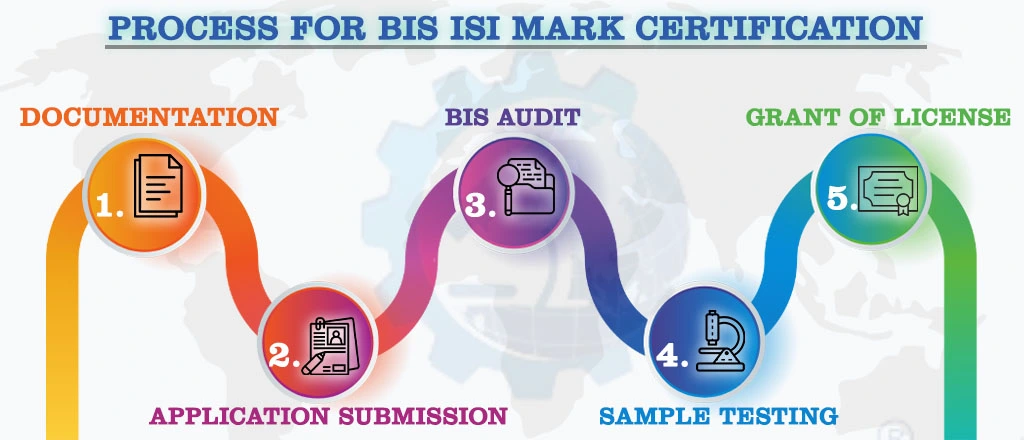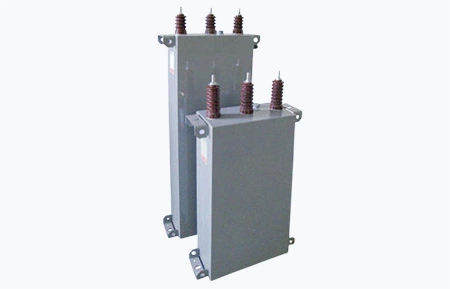BIS CERTIFICATION FOR SHUNT POWER CAPACITORS
IS 13585 (PART 1):2012
In this competitive scenario, it isn't easy to survive in the market without a standard quality and certified product. BIS license may also be required to sell products in the Indian market.
To get BIS certification and produce a standard quality product, the manufacturer must ensure that their product must follow the specified Indian standard.
Let's take a closer look at IS 13585 (Part 1): 2012 for Shunt power capacitors of the non - Self - Healing type for ac systems.
This Indian Standard (Part 1), which is identical to IEC 60931-1: 1996 issued by the International Electrotechnical Commission (IEC), was adopted by the Bureau of Indian Standards on the recommendation of the Power Capacitors Sectional Committee.
This standard cover 'Shunt power capacitors of the non-self-healing type for alternating current systems with rated voltages up to and including 1000 V - Part 1: General - Performance, testing and rating - Safety requirements - Guide for installation and operation.
The objective of this standard is to:
- Develop uniform rules for performance, testing, and rating
- Develop specific safety rules
- Serve as a manual for installation and operation
This standard specifies the specifications for capacitors. The capacitor must meet the standard's quality, safety, and performance requirements.
TESTS
The test is classified as:
Routine Test
- Capacitance Measurement and output calculation
- Measurement of the tangent of the loss angle of the capacitor
- Voltage tests between terminals
- Voltage tests between terminals and container
- Test of the Internal Discharge Device
- Sealing test
Type Test
- Thermal stability test
- Discharge test
- Destruction test
- Disconnecting test
Before delivery, every capacitor must have undergone routine testing by the manufacturer. Type tests are performed to ensure that the capacitor meets the specified characteristics and operation requirements outlined in this standard in terms of design, size, materials, and construction.
The Firm must declare the types of Capacitors that they intend to cover under the Licence. The scope of the Licence may be limited based on the Manufacturer's manufacturing and testing capabilities.
Labelling and Marking:
Labelling and marking shall be carried out in accordance with IS 13585 (Part 1):2012/ IEC 60931-1:1996. Each capacitor unit must mark with the information as specified in the standard.
The Standard Mark (ISI Mark) shall be marked on the product provided that the product so marked meets all specification requirements. The manufacturer must obtain a BIS license from the Bureau of Indian Standards to use a standard mark (ISI Mark). The BIS issues a license based on a successful evaluation of the manufacturing infrastructure, quality control, testing capabilities, and manufacturing process.

NOTE:
For Detailed Information about the Procedure for BIS ISI Certification
Visit :
ISI Mark Certification for Domestic ManufacturersISI Mark Certification for Foreign Manufacturers
Conclusion:
If a product falls under the scope of the BIS Conformity Assessment Scheme, All the manufacturers, importers, and foreign entities must obtain BIS ISI Certification. The Bureau may cancel the License if the product fails to meet certification requirements.
Aleph INDIA has been serving the industry as a single-window operator for all product regulatory compliance. We can assist importers or manufacturers in meeting all criteria for importing or selling a product in the Indian market.
International Audits & Participation
Testimonials
BIS REGISTRATION FOR ELECTRONIC & IT PRODUCT
In the era of globalization, world trade is growing rapidly and henceforth, Manufacturing and Import/Export businesses are also growing drastically...View More
BIS CERTIFICATE FOR FOREIGN MANUFACTURER
The Economy of India-the fastest developing economy on the globe with the capabilities that help it matches up with the biggest international...View More
PRODUCT CERTIFICATION SCHEME (ISI MARK) FOR DOMESTIC MANUFACTURERS
Anything a person buys from food to cars, clothes to electronics, branded to unnamed products there is always a question that wanders in one’s...View More
WIRELESS PLANNING AND COORDINATION (WPC)
WPC: Wireless means communication done from one point to another point without the wires and cables. Electromagnetic waves carry the ...View More
BUREAU OF ENERGY EFFICIENCY (BEE) CERTIFICATE
BEE CERTIFICATE: Energy is the future, and its conservation is the way of the bright future. Everyone claims the environment is important...View More
E-WASTE MANAGEMENT
E-waste is one of the world's fastest-growing trash streams. We currently manufacture almost 50 million tones of it each year...View More
Request a call back.
Would you like to speak to one of our Senior Technical advisers over the phone? Just submit your details and we’ll be in touch shortly. You can also email us if you would prefer.
BIS REGISTRATION FOR ELECTRONIC & IT PRODUCT
In the era of globalization, world trade is growing rapidly and henceforth, Manufacturing and Import/Export businesses are also growing drastically...View More
BIS CERTIFICATE FOR FOREIGN MANUFACTURER
The Economy of India-the fastest developing economy on the globe with the capabilities that help it matches up with the biggest international...View More
PRODUCT CERTIFICATION SCHEME (ISI MARK) FOR DOMESTIC MANUFACTURERS
Anything a person buys from food to cars, clothes to electronics, branded to unnamed products there is always a question that wanders in one’s...View More
WIRELESS PLANNING AND COORDINATION (WPC)
WPC: Wireless means communication done from one point to another point without the wires and cables. Electromagnetic waves carry the ...View More
BUREAU OF ENERGY EFFICIENCY (BEE) CERTIFICATE
BEE CERTIFICATE: Energy is the future, and its conservation is the way of the bright future. Everyone claims the environment is important...View More
E-WASTE MANAGEMENT
E-waste is one of the world's fastest-growing trash streams. We currently manufacture almost 50 million tones of it each year...View More
View All Services
Request a call back.
Would you like to speak to one of our Senior Technical advisers over the phone? Just submit your details and we’ll be in touch shortly. You can also email us if you would prefer.






























